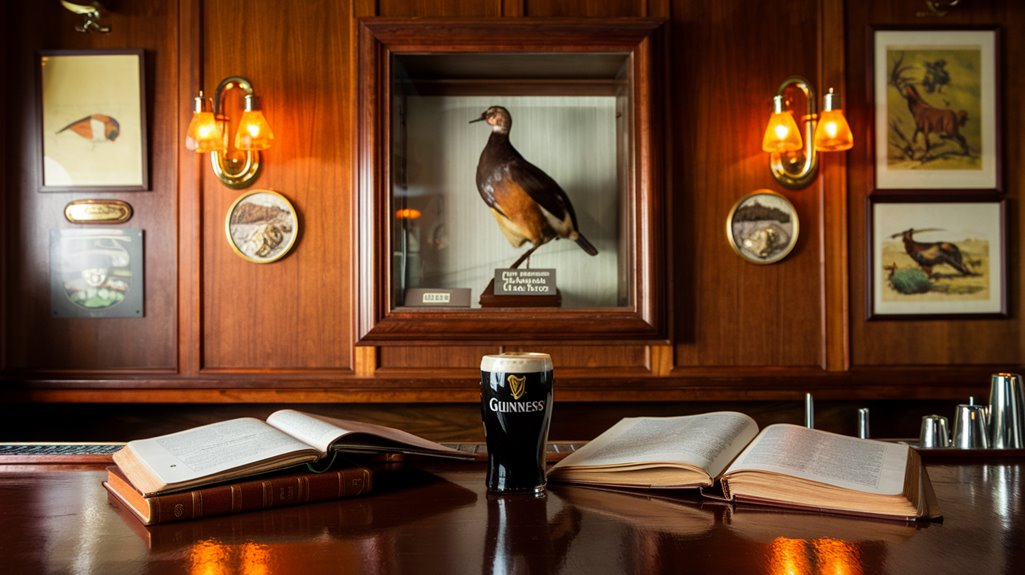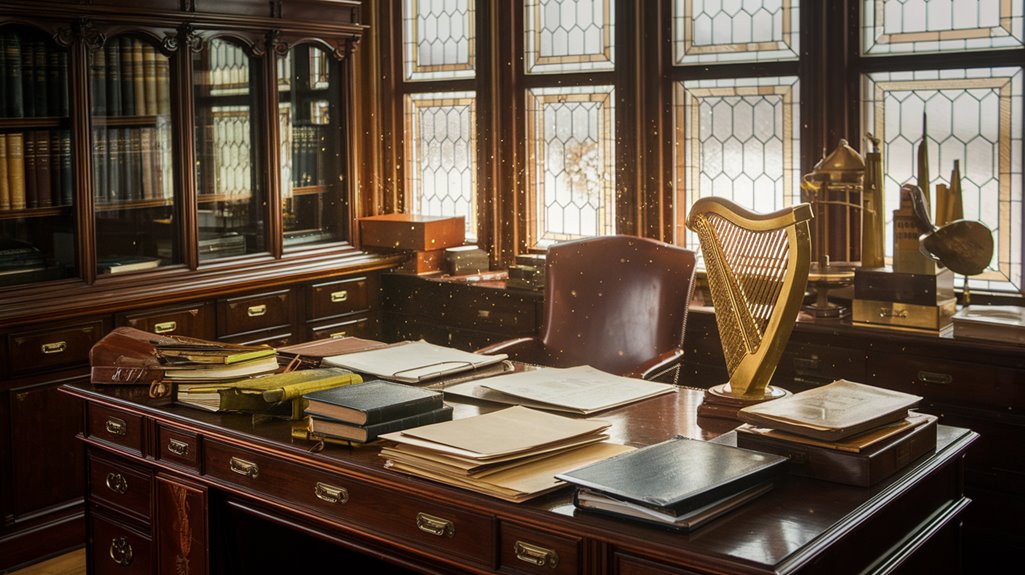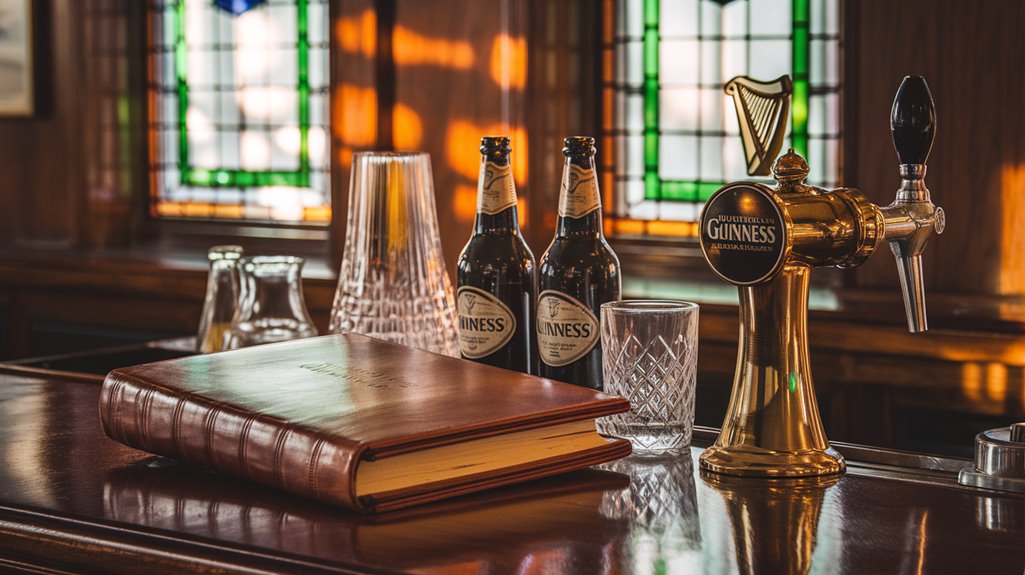Guinness World Records Started Out as a Guinness Brewery Promotion
Did you know that what began as a free pub handbook in 1955 has now sold more than 143 million copies across 100 countries? You've probably encountered a Guinness World Records book at some point in your life, but its origins as a marketing tool for a beer company might surprise you. The story behind this global phenomenon starts with an argument about birds at a hunting party and transforms into one of the most successful brand pivots you'll ever hear about.
A Bird Dispute That Sparked a Global Institution

While many great institutions arise from careful planning, the Guinness World Records began with a simple dispute over a bird's speed during a shooting party in 1946.
Sir Hugh Beaver, the Managing Director of Guinness Brewery, found himself in a heated debate about Europe's fastest game bird but couldn't find a definitive answer in any reference book.
This frustrating experience sparked an innovative idea: create a thorough book that could settle pub arguments and provide authoritative answers to similar disputes.
Beaver hired twin brothers Norris and Ross McWhirter to compile what would become The Guinness Book of Records. They worked tirelessly for 13.5 weeks to complete the first edition, which was initially distributed free to 1,000 pubs across Britain and Ireland.
The books were designed with special waterproof covers to protect them from beer spills in pubs.
The first edition was an immediate success, with 170,000 copies sold and required four reprints to meet demand.
Ironically, the original question about bird speed wasn't answered in the first edition.
From Free Pub Books to International Bestseller
Although Sir Hugh Beaver's free pub book started as a simple marketing tool for Guinness Brewery, it quickly transformed into a global publishing phenomenon.
What began as free giveaways during trivia nights in British pubs soon became a commercial success when the first edition hit bookstores in 1955, becoming a bestseller within just four months.
The book's unexpected popularity prompted Guinness to shift from promotional distribution to retail sales, launching annual editions from 1965 onward.
By 1966, they were selling 500,000 copies and added color plates to enhance visual appeal.
The publication has since been translated into multiple languages, reaching readers in over 100 countries. The book's meticulous fact-checking by the McWhirter brothers helped establish its reputation for accuracy.
The identical twins started their record-keeping venture in a small Fleet Street office in London, laying the foundation for what would become a global institution.
Today, with more than 153 million copies sold worldwide, you'll find the Guinness World Records brand extending far beyond its humble pub origins.
The McWhirter Twins' Remarkable Achievement
Two remarkable twins, Norris and Ross McWhirter, transformed Sir Hugh Beaver's vision into reality when they created the first Guinness Book of Records in just 13.5 weeks during 1955.
Their record organization and memorization techniques were so impressive that they could recall every world record in the book, which they demonstrated on "I've Got a Secret" in 1965.
The twins showcased their incredible memory skills when Bill Cullen guessed correctly during their appearance on the show.
Through their London-based fact-finding agency and roles as BBC sports commentators, the twins developed an encyclopedic knowledge of world records.
The twins initially helped create the book to settle pub debates like the one about game birds in Europe that inspired Sir Hugh Beaver.
You'll be amazed by their legacy:
- Created the ultimate authority on record-breaking achievements
- Published in over 100 countries and 40 languages
- Recognized with CBEs for their contributions
- Established one of history's most successful content marketing campaigns
Their dedication made Guinness World Records a global phenomenon, surpassed in sales by only a few books.
Evolution Into a Modern Media Empire
As the digital age transformed publishing, Guinness World Records evolved from a traditional book publisher into a dynamic media empire. Through digital innovation, the company diversified its revenue streams beyond traditional book sales, which had declined since the 2000s.
You'll find their media expansion includes television shows broadcast in 150 territories, a robust online presence with 14.3 million annual website visitors, and over 300 million YouTube views. Their brand evolution led to the launch of a brand content division in 2019.
They've also developed new revenue models, charging substantial fees for record verification services and creating branded content for major companies like Sony and Porsche. Since its introduction in 1955, the company has sold an impressive 150 million copies globally.
While this transformation hasn't been without controversy, particularly regarding their native advertising approach, it's helped them stay relevant.
They've successfully adapted their record-breaking content for digital platforms while maintaining their core appeal in the modern entertainment landscape.
Breaking Records Across Borders and Languages

The international reach of Guinness World Records extends far beyond its British roots, with the book now reaching readers in 100 countries and 40 languages.
This remarkable global expansion began when Guinness Superlatives incorporated in 1954, marking the official start of the record-keeping institution.
 143 million copies sold worldwide since their inception.
143 million copies sold worldwide since their inception.
In 2023 alone:
- 57,415 applications came from 215 countries
- 4,975 new records were approved
- The database grew to include 65,940 active record titles
- Record verification was conducted by a global team of adjudicators
You'll notice that 80% of each annual edition features new or updated records, ensuring you're always discovering fresh achievements from every corner of the world.
The Business Model Shift and Public Response
Since its humble beginnings as a free pub promotional item, Guinness World Records has transformed into a global entertainment powerhouse.
The company's business model evolved from publishing a single book to creating diverse revenue streams through digital content, live events, and strategic partnerships. Today, 70% of revenue comes from their publishing and media ventures.
You'll find the public's engagement with the brand is staggering – over 14.3 million annual website visitors and 899 million YouTube views demonstrate its massive reach.
In 2023 alone, people from 215 countries submitted 57,415 record applications.
This shift from traditional publishing to digital platforms wasn't just successful; it was necessary for survival as book sales declined. The company successfully adapted by selling publicity instead of relying solely on book sales.










